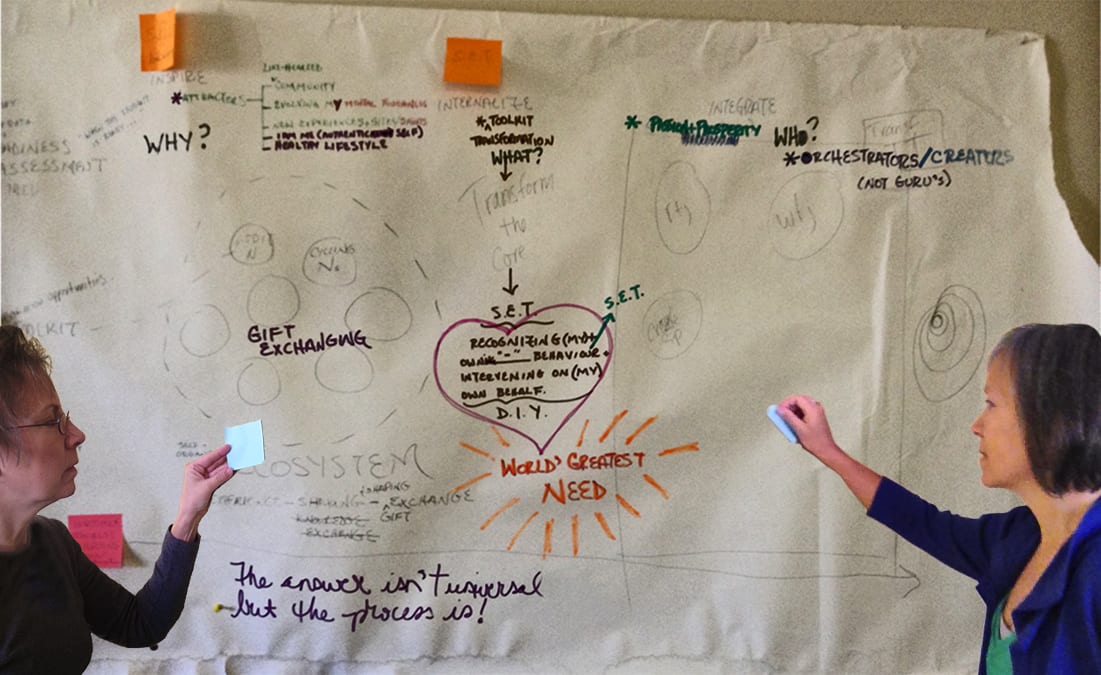In our truth, we all wish for heartfelt communication with family, friends and coworkers. I call these spirit-to-spirit conversations. However, even the most articulate and sensitive of us can let our emotions run wild and lose control over our ability to communicate with candor and compassion. When conversation turns away from open, honest dialogue and digresses into silent fuming, threats and/or name-calling, I call this ego-to-ego conversation.
We all know that when our egos are controlling our conversations, the goal of communicating has shifted from understanding each other to protecting oneself. Ultimately, communicating from a defensive position seeks to accomplish one or more of the following —
- Save face
- Avoid embarrassment
- Win
- Be right
- Punish others
Ego conversations are our defensive reactions to perceived threats (whether those perceptions are real or not). It is important to remember that by the time we reach adulthood, we have developed a conditioned response to perceived threats. In effect, that conditioned response occurs without much thought on our part. In other words, it has become automatic — flight or fight.
If you notice yourself consistently responding from your ego, your unconscious motivation is to win or to seek revenge or to remain safe. The ego is all about safety and when confronted moves toward fuming silence or fuming violence. For those of us whose inclination is to fume in silence, we typically mask what we actually think (with sarcasm or humour) or avoid the issue (by changing the subject) or withdraw (don’t say anything or physically leave).
If your tendency is to dominate, belittle, name-call or otherwise force others to your viewpoint, you are opting for violence. Controlling, labelling or attacking others are all violent means to ending the conversation in your favour, that is, winning, etc.
I learned a long time ago to weigh what was more important to me — being right or having a good relationship. Nonetheless, it took me several more years to understand why two people who love each other can remain trapped in the fuming silence-fuming violence cycle. The key, of course, was self-awareness. My style was to fume in silence, which really meant silently listing all the things wrong with the other person. Although I knew enough to not say those things aloud, I was still faultfinding in my head. Eventually, I came to understand that when we point the finger of blame at others, it is our own shortcomings we are pointing out and projecting on them. What we see in every person and every event is a mirror of who we are.
Whenever you are about to find fault with someone, ask yourself the
following question: What fault of mine most nearly resembles the one
I am about to criticize? Marcus Aurelius
Gauge your own self-awareness of your conversation style when you are under stress by taking this on-line assessment. The first step toward collaborative conversation is to know our own triggers and traps. Are you a fuming silent or a fuming violent? Remember, both are equally damaging to productive dialogue. Whether you have employed fuming silence, like me, or count on fuming violence to get your way, neither style promotes safety or collaboration or loving kindness. The first condition for safe, collaborative dialogue is mutual purpose.
Mutual purpose means that others perceive that we are working
toward a common outcome in the conversation, that we care about
their goals, interests and values. And vice versa. We believe they care
about ours.” Crucial Conversations
When mutual purpose is not established or is declined, conversations evolve into debates characterized by defensiveness, hidden agendas and accusations. Establishing a mutual purpose among all participants in the dialogue indicates mutual respect for each other’s dignity and safety.
Is there someone you have been avoiding having a conversation with because you fear the outcome? How might you bring about a mutually agreed-upon purpose for that conversation?





